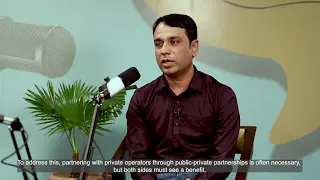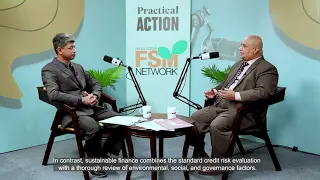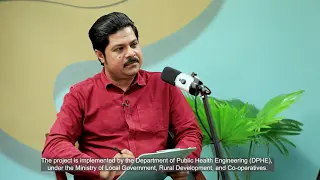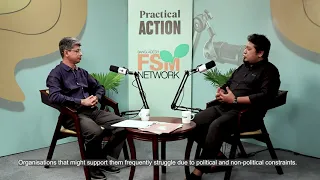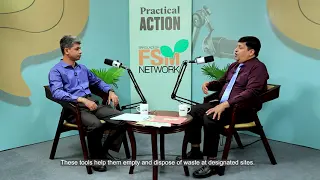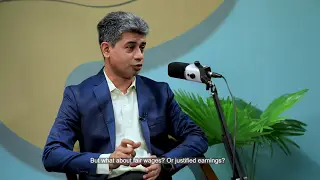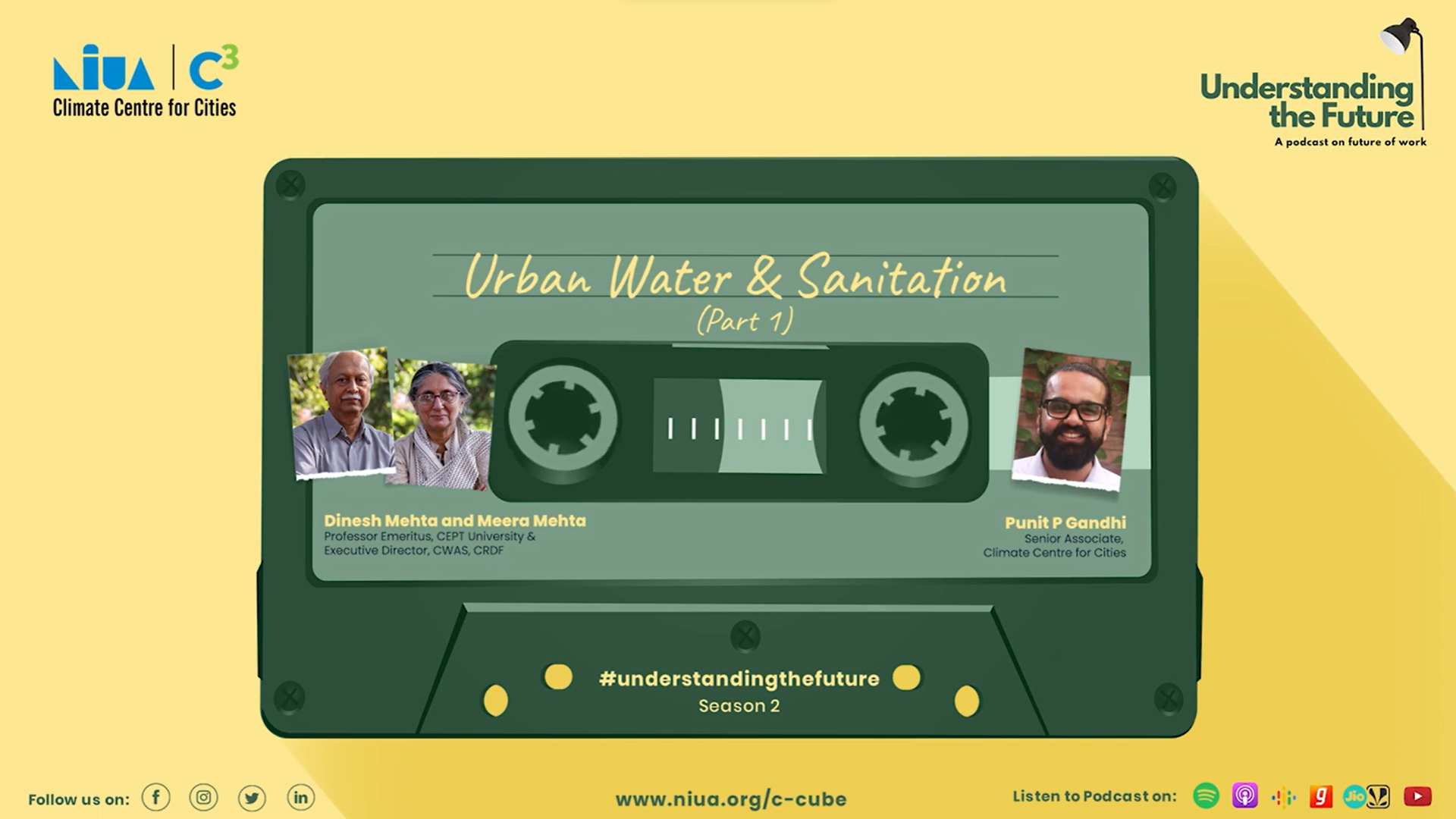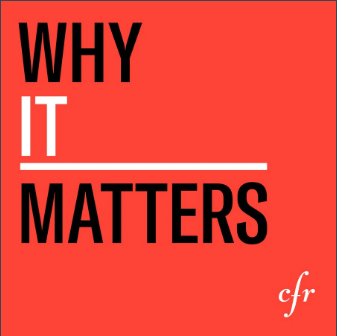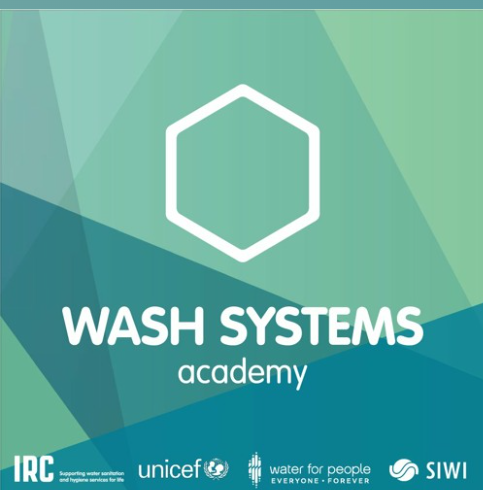6 August, 2025
Episode 7: Overcoming the Odds in Faecal Sludge Treatment Plants (FSTP) Management
With rapid urbanisation in Bangladesh, over 30% of the population now lives in urban areas, but sanitation infrastructure often struggles to keep pace. While toilet access has improved, most households still rely on on-site sanitation systems like pit latrines and septic tanks.
3 August, 2025
Episode 6: Towards Safer Working Conditions for Sanitation Workers in Bangladesh
Bangladesh has made significant strides in sanitation, but the health and safety of sanitation workers remain a major concern. Many workers, including pit emptiers and waste handlers, labour without adequate protection, training, or access to healthcare, leaving them vulnerable to illness and injury. Tragically, some have lost their lives while carrying out these essential duties. A large number of sanitation workers belong to marginalised communities such as the Horijon and Dalit, and often lack formal employment rights, insurance, or social security.
31 July, 2025
Episode 5: Future of Sanitation Financing in Bangladesh
As Bangladesh shifts toward a greener and more climate-resilient future, financing for sanitation and waste management is becoming increasingly important. Guided by Bangladesh Bank’s initiatives and global frameworks like the Sustainable Development Goals and the Principles for Responsible Banking, green finance is gaining momentum.
28 July, 2025
Episode 4: Strengthening Sanitation in Bangladesh Through Capacity Building
Sustainable Development Goal (SDG) 6 aims to ensure the availability and sustainable management of water and sanitation for all. The UN's SDG 6 Synthesis Report 2023 highlights that while some advancements have been made, significant challenges persist and there is a critical need for robust capacity building at all levels to accelerate progress and achieve SDG 6.2 by 2030. In this episode, we explore the urgent need to empower governments, communities, and organisations with the knowledge and tools they need to overcome these challenges.
25 July, 2025
Episode 3: Securing Social Security for the Waste and Sanitation Workers in Bangladesh
Across Bangladesh, thousands of waste and sanitation workers carry out essential yet hazardous jobs that keep our cities clean and healthy. Despite their vital contributions, many, especially those working informally, lack access to basic social protections such as health insurance, income support, or accident coverage. This leaves them and their families vulnerable to financial hardship when faced with illness, injury, or emergencies.
22 July, 2025
Episode 2: Lives and Livelihoods of Sanitation Workers
In Bangladesh, sanitation workers are often labelled with derogatory terms that carry deep social stigma and strip them of dignity. Whether formally employed by municipalities or working informally without protection, these workers face hazardous conditions, unstable incomes, and limited opportunities to change their profession.
19 July, 2025
Episode 1: Sanitation Workers' Dignity, Livelihoods, and Rights in Bangladesh
In Bangladesh, waste and sanitation workers play a critical role in keeping cities clean and safe. However, they are often among the most marginalised. Many work in unsafe conditions without contracts, fair wages, or legal protection. Most are informal workers with no access to health benefits or safety gear.
28 August, 2023
Urban Water & Sanitation
Dinesh Mehta and Meera Mehta are Professor Emeritus at the CEPT University and Executive Director of Centre for Water and Sanitation (CWAS), CEPT Research & Development Foundation (CRDF). In this episode, 'Understanding the Future of Urban Water and Sanitation’, with Dinesh Mehta and Meera Mehta, we explore the need for water supply and sanitation as an integral part of the Indian cities.
28 August, 2023
Let’s Talk About Toilets
Fifty-five percent of the global population lacks access to safe sanitation, a deadly global health disparity that rarely finds its way into the spotlight. In this episode, we examine the scope of the problem, and the cultural challenges that have made it surprisingly difficult to fix.
28 August, 2023
Leaving no one behind
Listen to this podcast (5 mins) with Farai Tunhuma of UNICEF on who is left behind and why in terms of access to water, sanitation and hygiene services? She also talks about measures that need to be in place to reach those left behind. This podcast was recorded for the WASH Systems Academy course 'Water, sanitation and hygiene system strengthening: The Basics'. Find our more on www.ircwash.org/wash-systems-academy.
